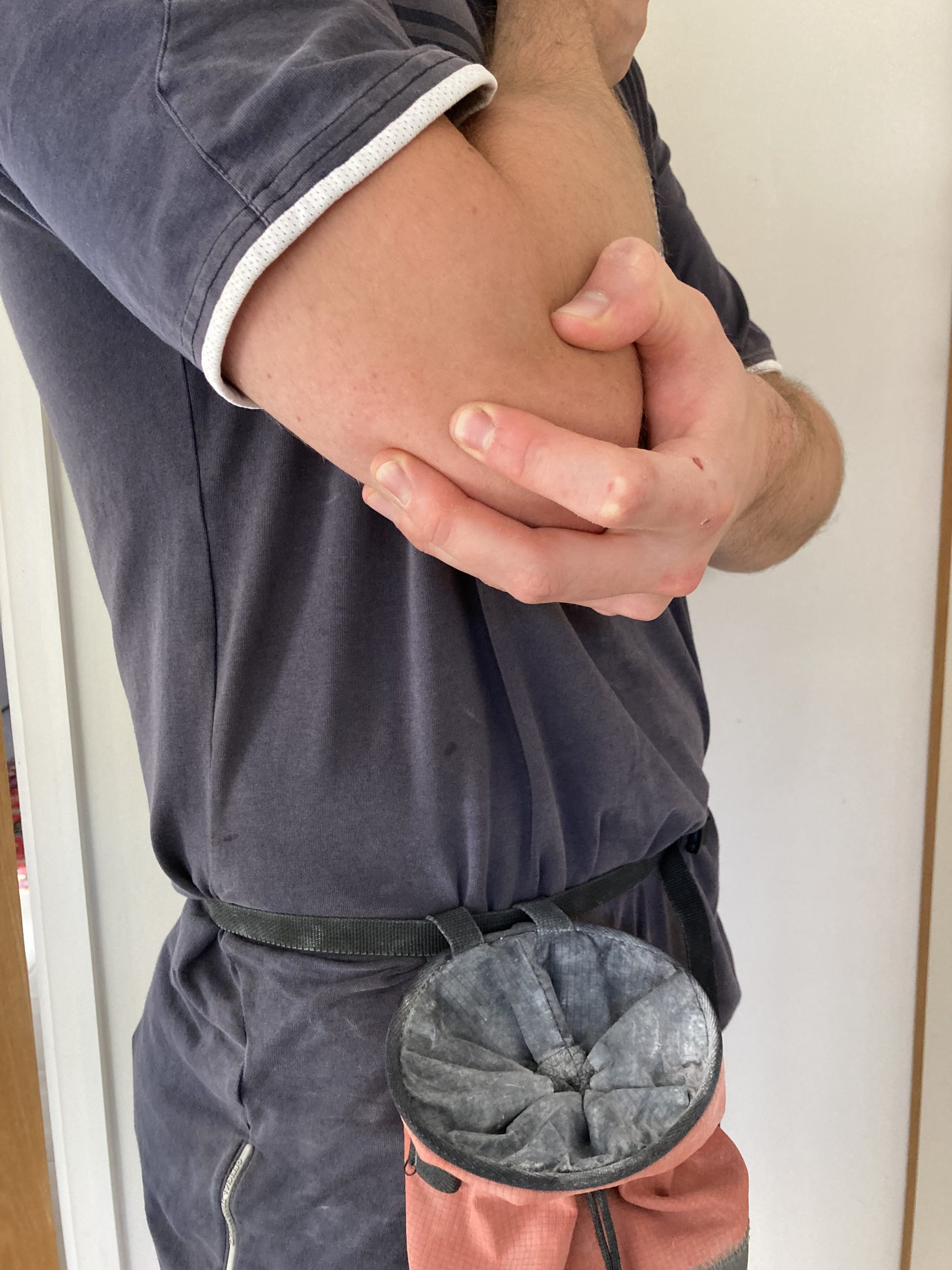CALL: 01483 527945 | EMAIL: clinic@lucksyardclinic.com
CALL: 01483 527945
EMAIL: clinic@lucksyardclinic.com
Liz Witham, from our Luck’s Yard massage team tells us all about elbows and how you can look after them to ensure you are able to exercise and do any number of daily tasks:
Your elbows allow you to throw, lift, and swing amongst other important things like embracing your friends or family members! Your elbow isn’t often given the credit it is due, or indeed the care it sometimes needs to perform so well on a daily basis for you.
Imagine if our arms didn’t bend or lift properly? It would make the simplest of daily tasks nigh on impossible. You would need a very long fork just to eat for a start!
Here we look at elbow health and big up the joint in the body which is often overshadowed by its louder siblings the hips and knees.
Elbows bend and straighten your arm and also twist your forearm so the palm of your hand can face up or down. It is such an important joint in everyday movement (think of how much you use it just making a cup of tea!), but it’s not a simple joint, which often means there are a lot of different ways it can malfunction or cause pain.
Your elbows are formed where the three bones in your arm come together including the bones in your upper and forearm. They are all linked with a complex web of ligament and tendons . This means the joint is susceptible to conditions like tendonitis, nerve restricted conditions such as carpal, radial or cubital tunnel syndrome and arthritis.
Ever bumped your elbow? Nothing funny about the pain when you do that, is there?! Its called the funny bone as the upper arm bone is called the humerus which sounds like humorous, but also when you bump your elbow you often catch the ulna nerve which is an exposed nerve. This causes tingling or an electric shock type pain down the arm which, if you have every experienced it, isn’t very nice. Elbow pads in sport where falls are prevalent, are really good at protecting this vulnerable junction of bone and nerve.
Elbow pain can come on suddenly or progress over time depending on the cause. An impact or fall can inflame the joint and pain can come on very quickly. If you play racket sports, a change of racket weight or handle girth can bring on tendonitis where the muscles are being asked to work in a different way and get aggravated. Poor shoulder, health neck pain and tension can also bring on elbow issues.
Common tenonditis conditions you may have heard of are tennis or golfers elbow. This reference is due to its commonality in these sports but you can suffer these conditions even if you don’t play them, and more so from repeated forearm twisting movements causing the aggravation. Tennis elbow is pain on the outside (lateral) bony part of the elbow coming down the forearm; golfers elbow is pain on the inside of the elbow radiating down the forearm. This can make every day activities such as turning a door handle, making and holding a drink, cutting and chopping food, and even driving painful.
Your ulnar nerve passes through a tunnel of muscle, ligament and bone on the inside of the elbow (the ‘cubital tunnel’) . This is the exposed nerve mentioned earlier when you hit your funny bone. When this becomes inflamed, swollen and irritated it causes pain. Often this is a result of lots of lifting, bending the elbow and leaning on the elbow joint.
Arthritis, bone spurs and dislocations can also cause cubital tunnel syndrome.
Here at the Luck Yard’s Clinic we can help diagnose your condition and work on a treatment plant for you. This may involve massage, manipulation, dry needling stretch and strength building.
Prevention is better than cure to stave off these conditions. Warming up, correct safe techniques, shoulder health, stretch and strength are all good ways to do this. Statistically, when you reach the ripe age of 30, you are much more susceptible to the above, so to take time for maintenance and self care should be a huge priority to remain as pain free as possible.
You can book appointments with Liz online or by calling our Reception team on 01483 527945
Read more about Liz here: https://www.lucksyardclinic.com/meet-the-team/liz-witham/




